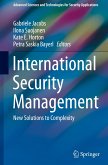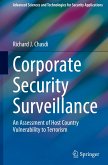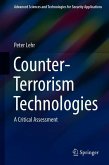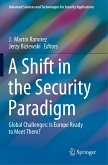This book offers a new look at international security management combining practical applications and theoretical foundations for new solutions to today's complex security and safety challenges. The book's focus on safety as a positive experience complements the traditional approach to safety as risks and threats. In addition, its multi-stakeholder, multi-disciplinary, international and evidence-based approach provides holistic and timely insights for the field. Topics raised in this book focus on the crucial questions of: Who is safety actually for? (and) How can sustainable safety solutions be jointly created?
This book provides comprehensive insights into the latest research findings, practical applications and suggestions for dealing with challenges in international security management in integrated and sustainable ways, making it relevant reading for practitioners, as well as academics and students - with a view to obtaining thorough, first-hand knowledge from serving experts in the field. We explore new ways of working with citizens, police and policymakers in order to co-create safety. This book emphasises the importance of safety as a topic that matters for all.
"Safety and security are basic pillars for the development of our society. However, the number of areas, actors and procedures involved in the management of the different elements composing the international security eco-system, its coordination and alignment, make it a challenging issue to resolve. This book provides a fresh new approach to this complex issue, in which we all have a role to play."
Fernando Ruiz, Acting Head of European Cyber-Crime Centre - Europol
"A very timely analysis that brings a much-needed international perspective to the field of security management. The authors explore the challenges confronting security management in a complex and connected world and generate new ideas to support practice and inspire research."
Professor Mark Griffin; John Curtin Distinguished Professor, Curtin University; Director, Future of Work Institute
"This book presents the role of International Security Management in the 21st century in an innovative way."
Dr. Christian Endreß, Managing Director, ASW Bundesverband - German Association for Security in Industry and Commerce
This book provides comprehensive insights into the latest research findings, practical applications and suggestions for dealing with challenges in international security management in integrated and sustainable ways, making it relevant reading for practitioners, as well as academics and students - with a view to obtaining thorough, first-hand knowledge from serving experts in the field. We explore new ways of working with citizens, police and policymakers in order to co-create safety. This book emphasises the importance of safety as a topic that matters for all.
"Safety and security are basic pillars for the development of our society. However, the number of areas, actors and procedures involved in the management of the different elements composing the international security eco-system, its coordination and alignment, make it a challenging issue to resolve. This book provides a fresh new approach to this complex issue, in which we all have a role to play."
Fernando Ruiz, Acting Head of European Cyber-Crime Centre - Europol
"A very timely analysis that brings a much-needed international perspective to the field of security management. The authors explore the challenges confronting security management in a complex and connected world and generate new ideas to support practice and inspire research."
Professor Mark Griffin; John Curtin Distinguished Professor, Curtin University; Director, Future of Work Institute
"This book presents the role of International Security Management in the 21st century in an innovative way."
Dr. Christian Endreß, Managing Director, ASW Bundesverband - German Association for Security in Industry and Commerce








